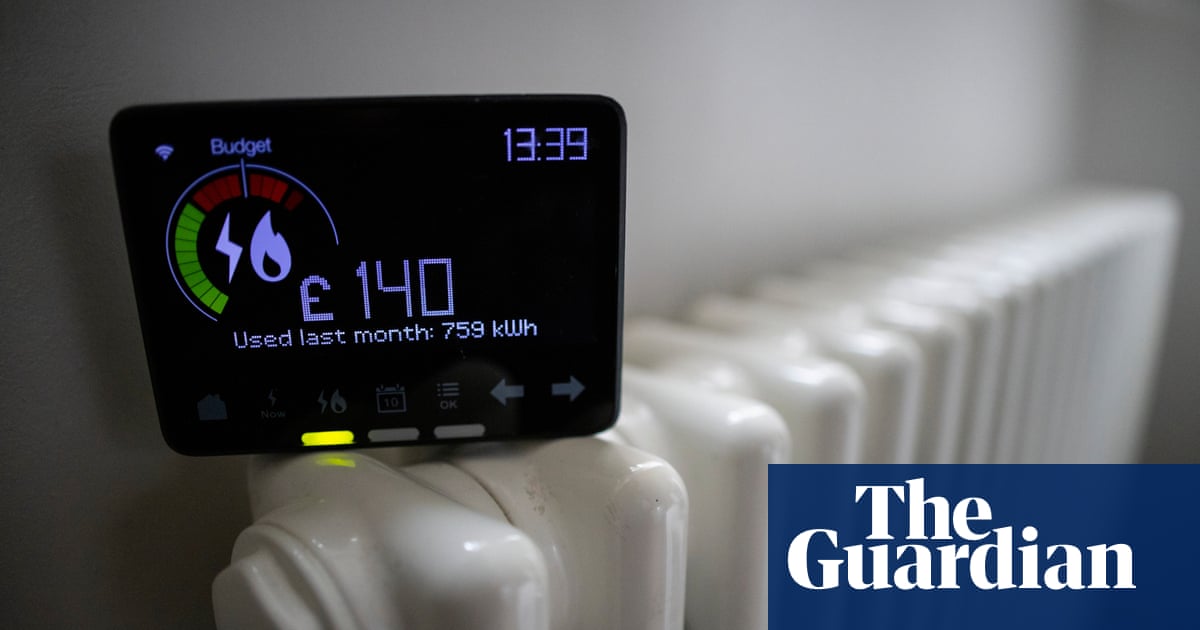
UK consumers have been warned to brace themselves for a substantial increase in the cost of living, including the prospect of £3,000-a-year energy bills after the Russian invasion of Ukraine.
The prices of wholesale gas and oil soared on the back of the news, leading to predictions of further rises in domestic bills.
The AA and RAC warned that petrol and diesel prices would start rising within days after crude oil prices reached record levels.
Analysts are warning that household gas and electricity bills could rise by a further £600-£1,000 a year – to as much as £3,000 – after the Russian invasion pushed up wholesale gas prices 28% on Thursday morning.
Although UK households are not heavily reliant on Russian gas, concerns that supplies from the country will be disrupted have pushed up prices on the wholesale market.
After Germany halted the approval of the Nord Stream 2 gas pipeline this week, the Russian politician Dmitry Medvedevwarned that natural gas prices could double in Europe.
Oil prices have risen to a seven-year high over concerns about supplies from Russia.
Energy bills
The market turmoil is expected to cause further hardship for those already struggling to heat and light their homes. On 1 April, the average dual fuel bill is already set to rise to a record £1,971, and more pain could be on the way when the regulator Ofgem reviews the maximum rate that suppliers can charge in the autumn.
Roger Bird, the head of energy trading and risk at the consultancy Advantage Utilities, warned that volatility in the energy market in the coming months could easily result in the cap increasing by £600 or more.
Should Russia cut Europe off from its gas supplies, the continent would be at the mercy of a “cut-throat” industry that often sees gas supplies circle oceans and be redirected to the highest bidder, he said.
“The worst-case scenario could see wholesale prices far exceed the astonishing spike previously seen around December 2021.”
Martin Young, a senior energy analyst at Investec, was even more pessimistic. In a note sent to City clients, he warned that British households could face “devastating” rises in their energy bills if wholesale prices remain at their current levels.
“The jump in electricity and gas prices of recent days has sent our October tariff cap estimate soaring above £3,000,” he said. “This could be devastating for UK households with elevated fuel poverty, and an ‘eat or heat’ dilemma.”
Sarah Coles, a senior personal finance analyst at the financial services firm Hargreaves Lansdown, said: “Millions of people have fallen into the fuel poverty gap, and war between Ukraine and Russia could push even more of us over the edge.”
Petrol prices
Petrol and diesel reached record levels in the UK on Wednesday, with unleaded at nearly 149.5p a litre and diesel at almost 153p, and the RAC said petrol could rise as high as £1.60 a litre.
“Russia’s actions will now push petrol pump prices up to £1.50 very soon,” said Simon Williams, the RAC’s fuel spokesperson. “The question then becomes where will this stop and how much can drivers take, just as many are using their cars more and returning to workplaces.”
Williams said if oil prices rose to $110 (£82) a barrel, “there’s a very real danger the average price of petrol would hit £1.55 a litre”.
He said: “This would cause untold financial difficulties for many people who depend on their cars for getting to work and running their lives as it would skyrocket the cost of a full tank to £85.”
If prices were to hit $120 a barrel that could translate to a price of £1.60 a litre at the pumps and £88 for a full tank, he added.
However, the AA said there were other factors that would work to stabilise the price for consumers. The first is that market increases often fall back after surges earlier in the day or week, and that the cost of petrol does not go up at the same rate as oil during global events. Finally, the fuel consumption of vehicles is lower coming out of winter.
Edmund King, the AA president, said: “Prices at the pumps still vary considerably and tend to be cheaper when there is supermarket competition. To conserve fuel, drivers should consider cutting out short journeys, car sharing and eco driving. Cutting speed and driving more smoothly can lead to 15% reductions in fuel consumption.”












